News
-

CVMC Welcomes First Baby of 2026
January 05, 2026Canyon Vista Medical Center welcomed its first baby of the new year just twenty minutes into 2026, marking a joyful beginning for one local family and the greater Cochise County community.
Learn more -

What Your Annual Blood Work Can Reveal About Your Health
December 22, 2025Your yearly blood work gives your provider information they can’t see during a physical exam, sometimes before you notice any symptoms at all. Blood work isn’t only for sick visits – routine lab work plays a key role in preventive care and long-term health. In Sierra Vista, Arizona, many adults…
Learn more -
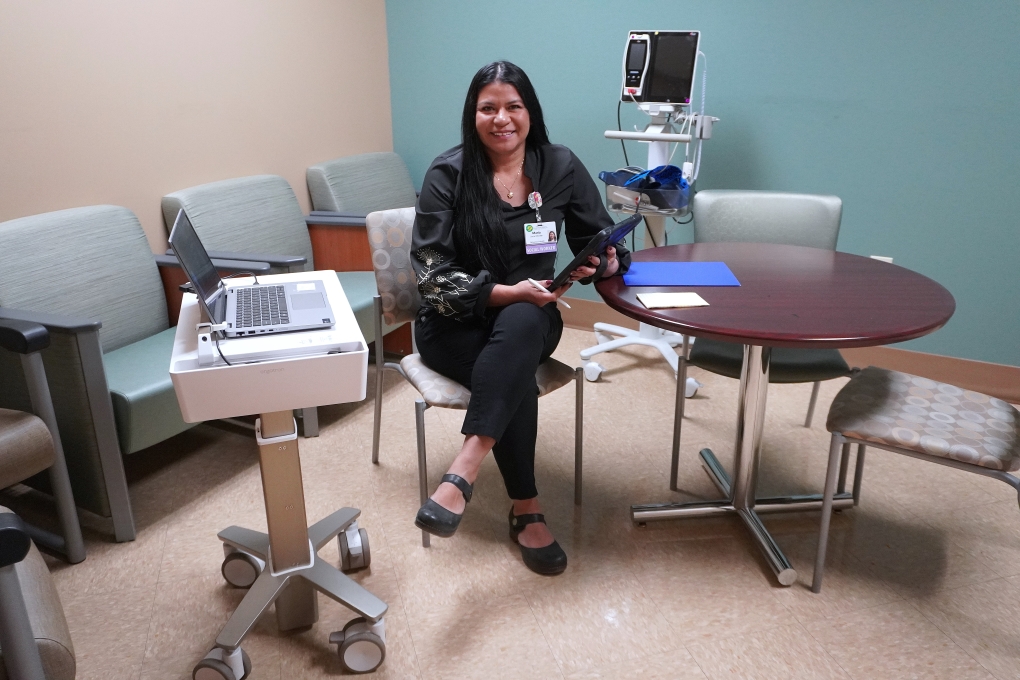
CVMC Launches Direct Behavioral Health Intake Process to Enhance Emergency Mental Healthcare
December 17, 2025Canyon Vista Medical Center (CVMC) is proud to announce a new intake and assessment process for patients experiencing mental and behavioral health emergencies. These patients will be able to bypass the traditional Emergency Department and proceed directly to assessment within the behavioral health unit.
Learn more -
2a171e6ef42c4fec960479f78e66e5bc.jpg)
Is It a Cold, the Flu, or Something Else? How to Tell the Difference
November 24, 2025When your child starts coughing, sneezing, or running a fever, it can be hard to know what you’re dealing with. As the seasons change and kids head back to school or daycare, coughs and sniffles start making the rounds. Here in Sierra Vista, Arizona, that often leaves parents asking: is it just a cold, or something more serious like the flu, RSV, or…
Learn more -

What Does Breast Cancer Look Like in Its Early Stages?
October 21, 2025Breast cancer is one of the most common cancers in women, and early detection can dramatically improve outcomes. But what does breast cancer actually look like in its earliest stages? It’s not always a visible lump – early signs can be subtle, and knowing what to watch for can make all the difference. Below are some common early signs and symptoms to be…
Learn more -

Why You Shouldn’t Skip Your Annual Physical: Screenings That Save Lives
September 26, 2025Many people put off their annual physical, if they feel fine, there’s no urgent need to visit the doctor. But skipping your yearly check-up can mean missing the early signs of serious conditions that are often treatable if caught early. At Canyon Vista Medical Center, we believe prevention is just as important as treatment. Your annual physical is a…
Learn more -
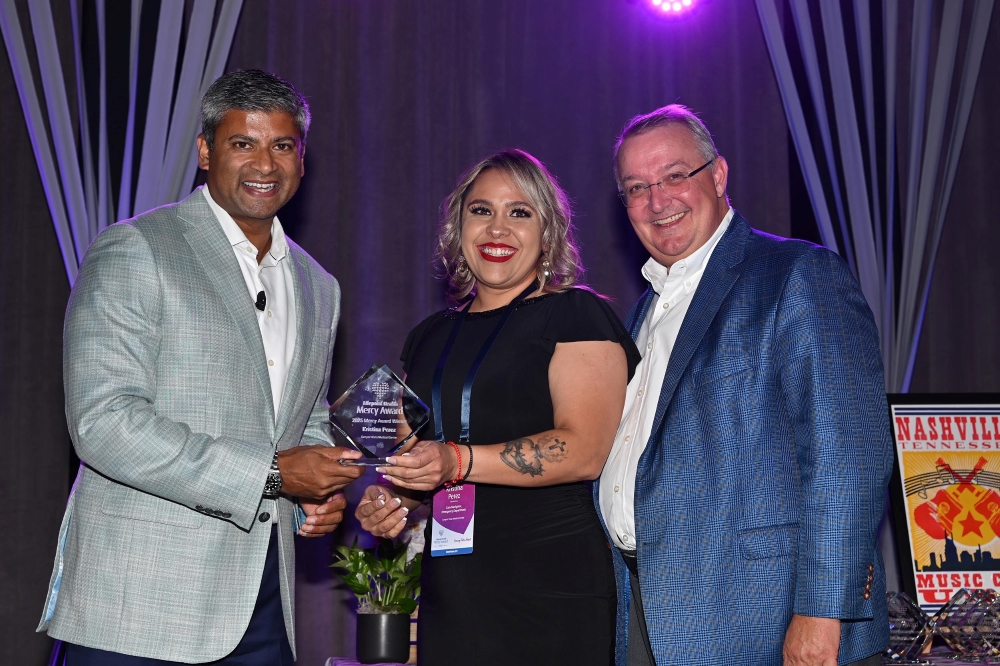
A Heart of Mercy: Honoring Kristina Perez
September 24, 2025When Kristina Perez talks about her journey at Canyon Vista Medical Center, her words are filled with gratitude, humility, and faith. Recently named Canyon Vista’s local recipient of Lifepoint Health’s prestigious Mercy Award, Kristina represented the hospital in Nashville at the enterprise-wide celebration -- an experience she describes as a blessing she…
Learn more -

Canyon Vista Medical Center and The Legacy Foundation of Southeast Arizona Announce the 2025/26 Veterans Wall Honorees
September 03, 2025Canyon Vista Medical Center and the Legacy Foundation of Southeast Arizona are proud to announce the 12 honorees for the 2025/26 Veterans Wall.
Learn more -
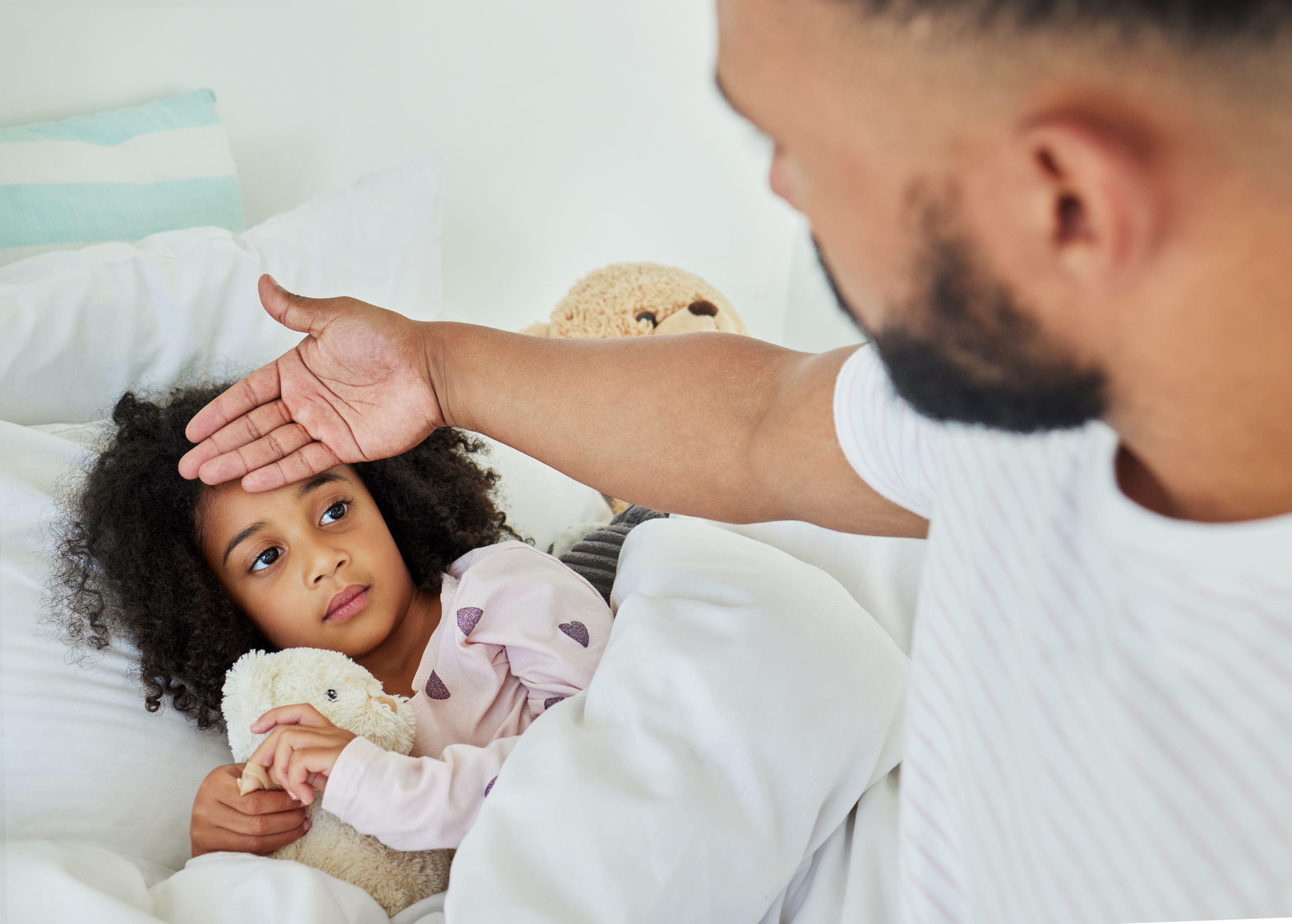
How to Protect Your Child from Fall Viruses like Flu, RSV, and COVID
September 03, 2025In warmer parts of the country like Sierra Vista, AZ, respiratory virus season can begin as early as September and stretch well into the winter. With kids back in school, viruses like flu, RSV, and COVID-19 start spreading quickly – especially among young children whose immune systems are still developing. As a parent, you can take steps now to help…
Learn more -
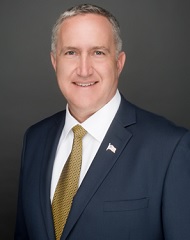
CVMC Names Scott Avery as Chief Executive Officer
August 13, 2025Canyon Vista Medical Center is pleased to announce the appointment of Scott Avery as its new Chief Executive Officer, effective August 18. Avery has been serving as interim CEO since June and brings more than 27 years of senior leadership experience in both civilian and military healthcare operations. A decorated U.S. Army veteran and accomplished hospital executive, Avery’s career includes leading major medical centers, earning national recognition for quality care, and fostering strong community connections. His leadership at CVMC will focus on advancing our mission of making communities healthier® and continuing our commitment to safe, compassionate, high-quality care for Cochise County.
Learn more -
.jpg)
Why Mosquito-Borne Illnesses Are on the Rise — and How to Protect Yourself
July 31, 2025Warmer weather and standing water are fueling a surge in mosquito-borne diseases. Here’s what you need to know and how to prevent them.
Learn more -
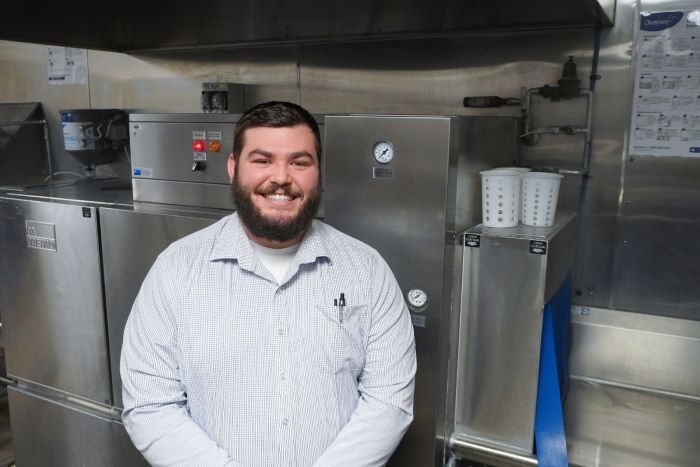
From Dishwasher to Director: Jesse Rowley's Journey Through Heart, Hustle and Service
July 29, 2025When Jesse Rowley walked through the doors of Canyon Vista Medical Center in 2019, he wasn’t expecting to lead a department one day. Hired as a “Nutrition Aide,” Jesse started where many great leaders do— on the ground level. From stocking nutrition rooms and delivering trays to patients, to overseeing...
Learn more -

CVMC Welcomes Abby Alvarez, PA-C
July 28, 2025Canyon Vista Medical Center (CVMC) is pleased to announce that Abby Alvarez, PA-C, has joined Sierra Vista Medical Group – Orthopedics. Abby is a certified Physician Assistant with more than a decade of experience in orthopedic care and surgery. She is now seeing patients, ages 12 and older, for a...
Learn more -

CVMC Awarded Advanced Primary Stroke Center Certification from the Joint Commission
July 15, 2025Canyon Vista Medical Center (CVMC) has earned The Joint Commission’s Gold Seal of Approval® and the American Stroke Association’s Heart-Check mark for the Advanced Primary Stroke Center Certification.
Learn more -
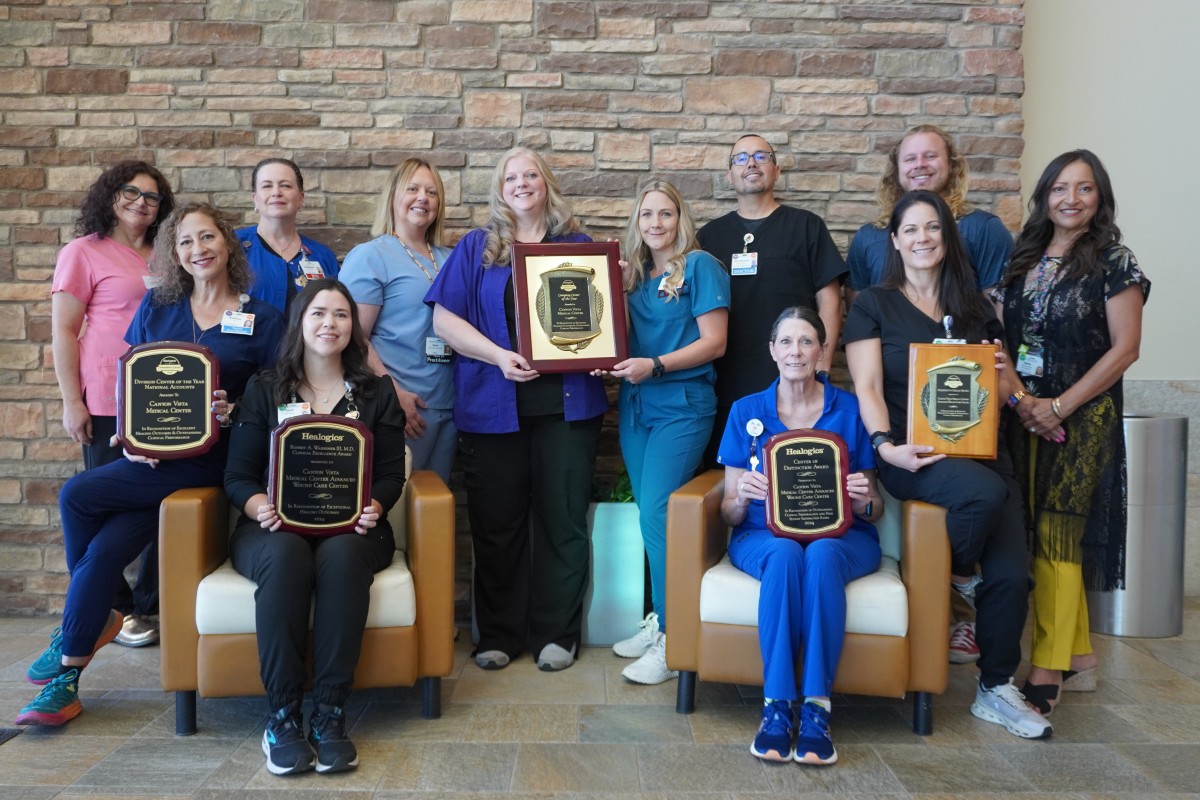
CVMC Advanced Wound Care Center Earns Five Prestigious National Awards
July 01, 2025Canyon Vista Medical Center (CVMC) is proud to announce that its Advanced Wound Care Center has been recognized with five national awards from Healogics®, the nation’s largest provider of advanced wound care services. Benchmarked against 650 clinics nationwide, the center received the Center of Distinction, Robert A. Warriner III, M.D....
Learn more -
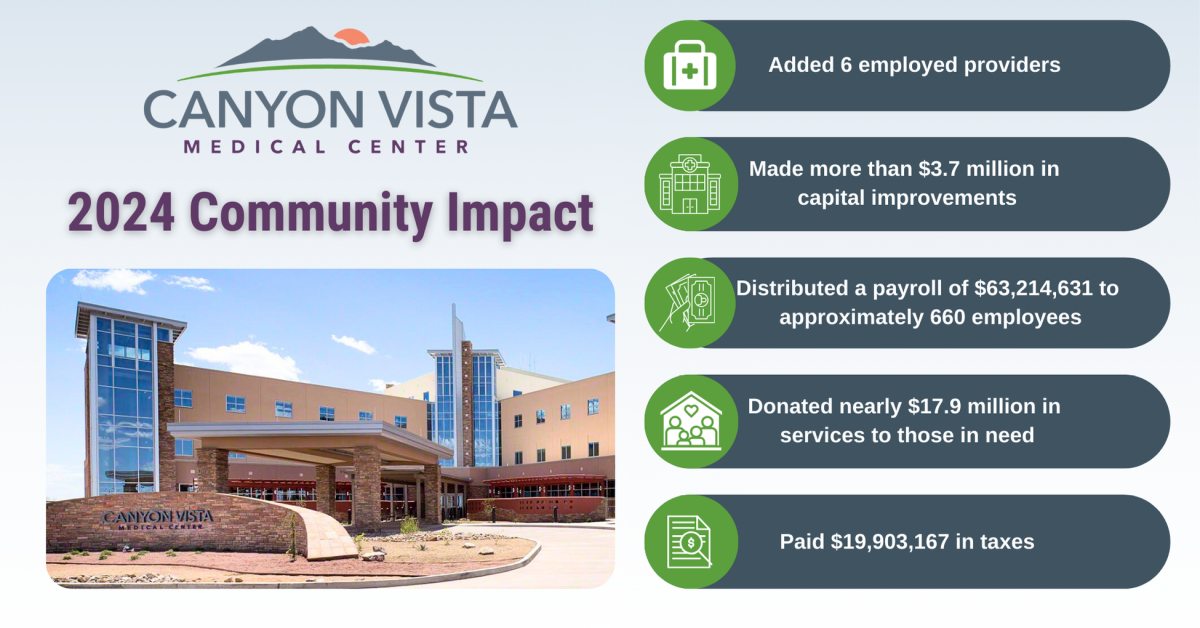
CVMC Publishes 2024 Community Benefit Report
May 30, 2025Canyon Vista Medical Center (CVMC) has published its community benefit report for the 2024 calendar year. This annual report outlines the various ways the hospital is working to support the health and economic vitality of Southern Arizona as part of its mission of making communities healthier®. “For more than 10 years,...
Learn more -
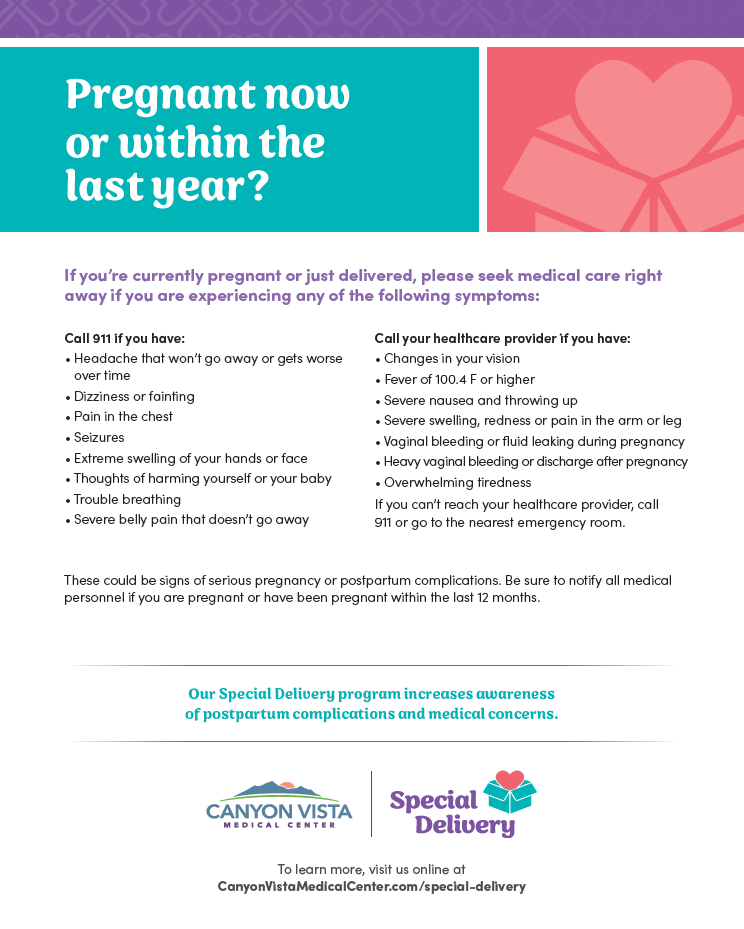
CVMC Launches Special Delivery Program to Improve Maternal Health and Save Lives
May 29, 2025Canyon Vista Medical Center (CVMC) is proud to announce the launch of the Special Delivery Program, an initiative aimed at improving postpartum care and reducing maternal mortality. This innovative program provides postpartum patients with wristbands to wear for six weeks after delivery, helping ensure they receive timely and appropriate care...
Learn more -
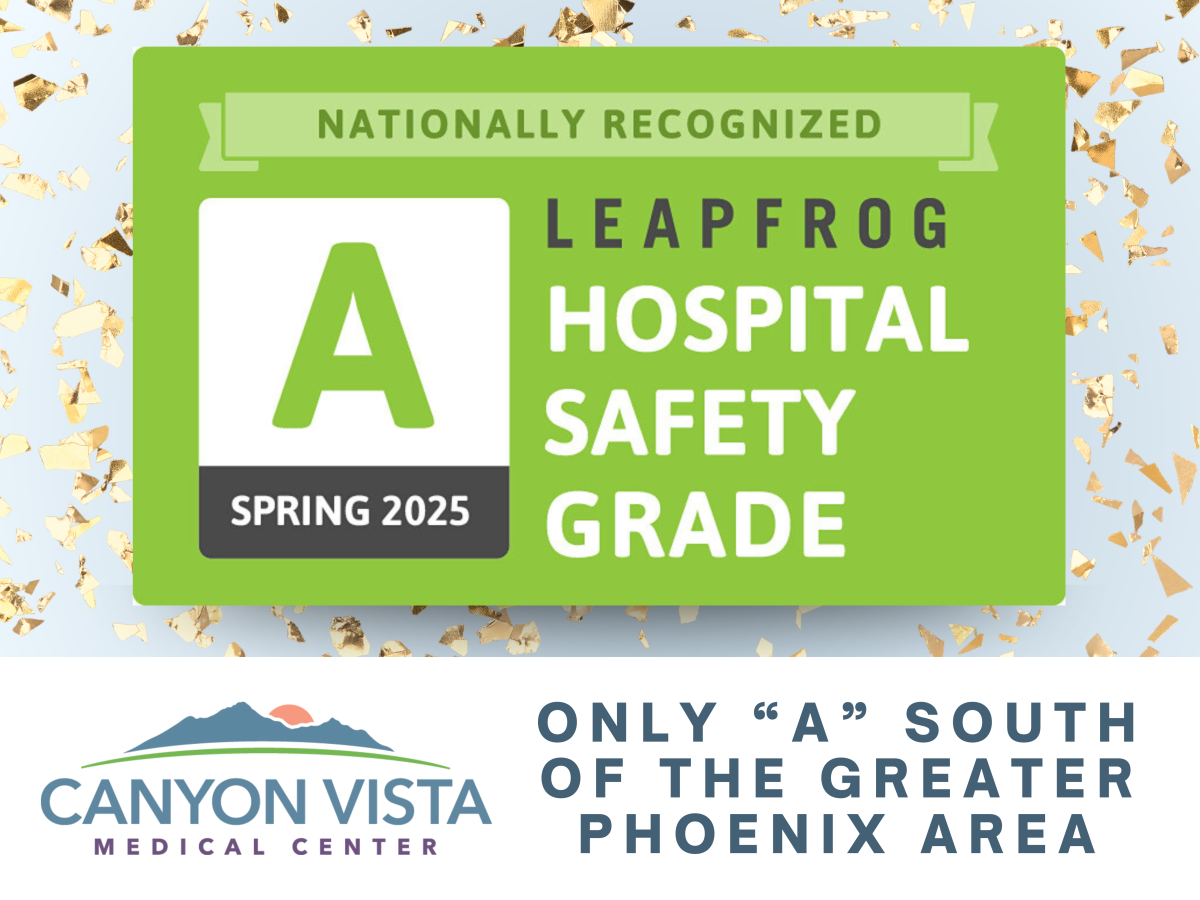
CVMC Awarded 'A' Hospital Safety Grade from the Leapfrog Group
May 05, 2025Canyon Vista Medical Center (CVMC) received an “A” Hospital Safety Grade from The Leapfrog Group. This national distinction celebrates CVMC’s achievements in protecting hospital patients from preventable harm and errors. “Earning an ‘A’ from The Leapfrog Group is a significant achievement that places Canyon Vista among the top hospitals in the...
Learn more -

Now accepting nominations for the 2025/26 Veterans Wall
April 29, 2025Nominations are underway! Canyon Vista Medical Center (CVMC) and the Legacy Foundation of Southeast Arizona (LFSAZ) are recognizing former or current residents of Cochise County who have served the country and our county. Nominations for the 2025/26 Veterans Wall are being accepted through July 1st, 2025. Nominations may be submitted...
Learn more -

CVMC Welcomes Dr. Michael Nuzzo
April 28, 2025Canyon Vista Medical Center is pleased to announce that Michael Nuzzo, MD, has joined Sierra Vista Medical Group – Orthopedics. Dr. Nuzzo is a Board-Certified Orthopedic Surgeon and Fellowship-Trained Sports Medicine Specialist, bringing over 15 years of experience in orthopedic surgery and sports medicine. Dr. Nuzzo earned his Doctor of Medicine...
Learn more
